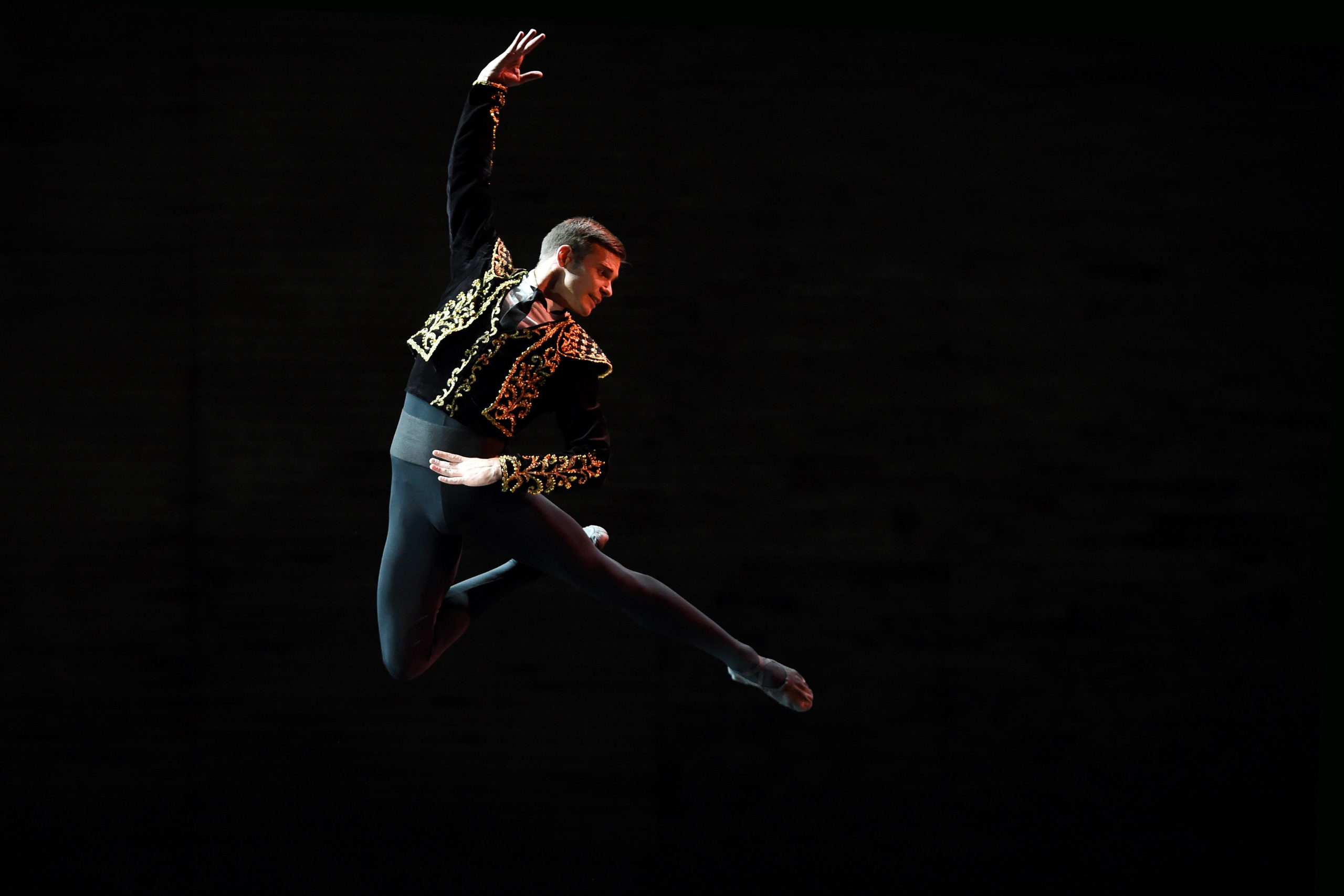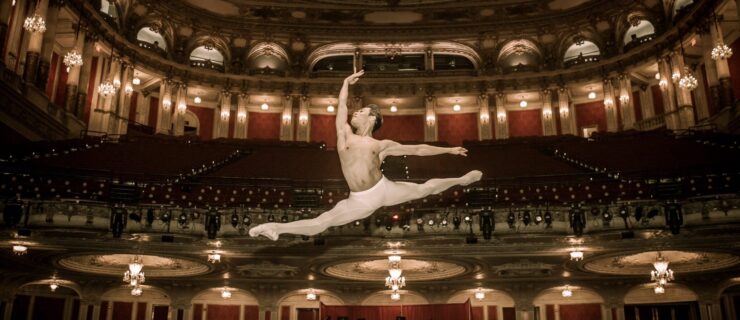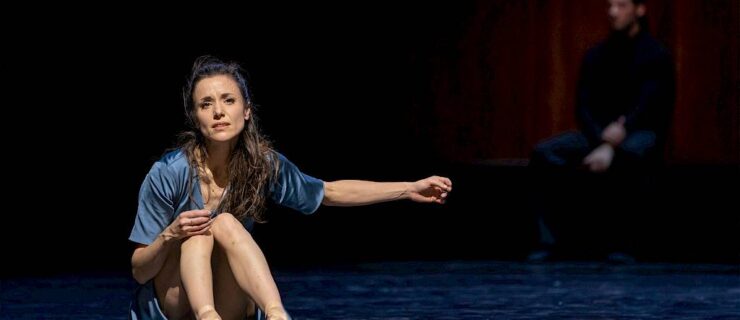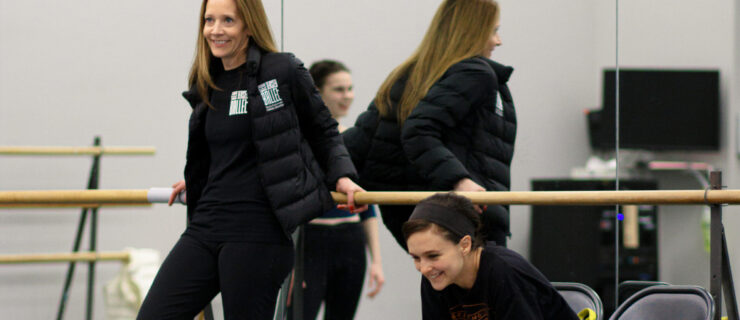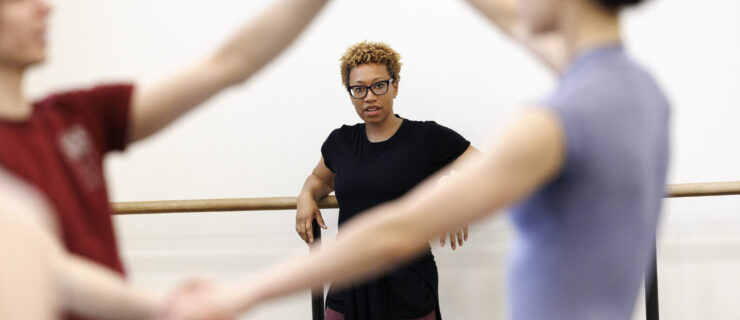How Putin’s Invasion of Ukraine Has Affected the Ballet World
Updated on 3/9/2022
At Miami City Ballet’s February 26 performance of Alexei Ratmansky’s Swan Lake, artistic director Lourdes Lopez stepped in front of the curtain to give a pre-show speech. She asked for a moment of silence for the choreographer’s family members, who were spending the night in an air raid shelter in Kyiv, Ukraine. (Ratmansky, who was not at the performance, is Ukrainian and Russian and grew up in Kyiv, and his wife, Tatiana, is Ukrainian.)
Just 30 minutes earlier in my hotel room, I had watched news footage of a massive explosion outside the city, the result of Russian president Vladimir Putin’s military invasion. As the lights dimmed and Swan Lake’s overture began to play, a heavy sadness filled the theater.
To say that Russia’s invasion of Ukraine is affecting the dance world is an understatement. Ballet is both a major Russian cultural export and a highly international artform. In a matter of days, tours of Russian companies have been canceled, and the international dance community has rallied on social media to speak out overwhelmingly against the invasion. Meanwhile, the fate of dancers in Ukraine hangs in the balance.
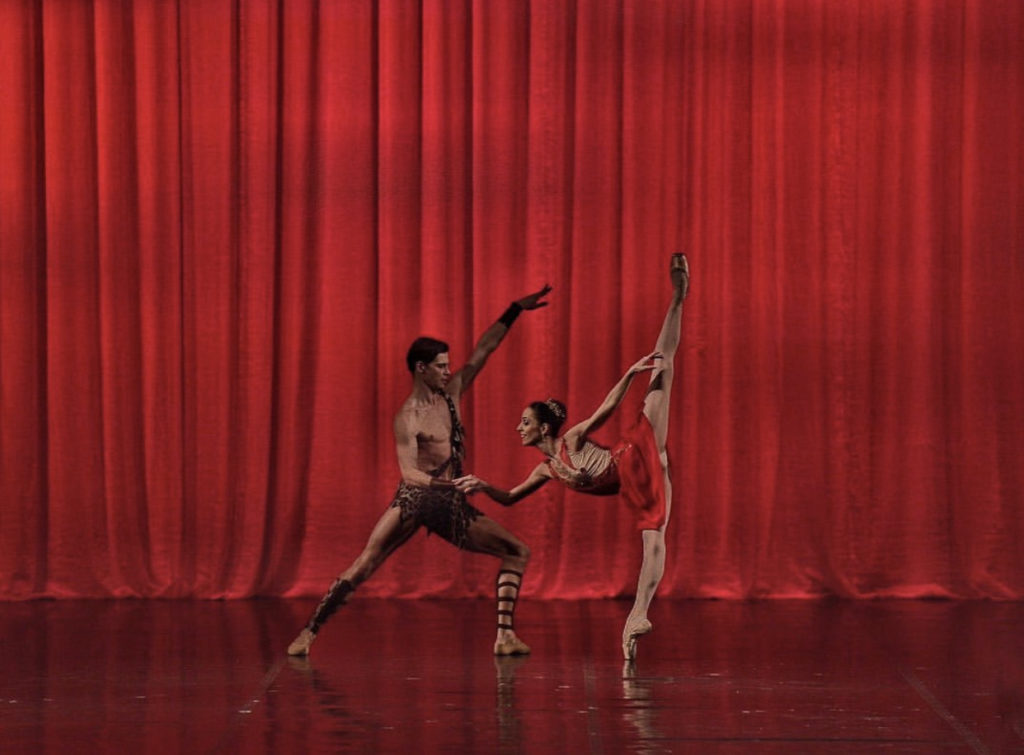
Last week, the Ukrainian National Ballet’s theater closed, following orders by its government; rehearsals have ceased indefinitely. Argentinian-born Ana Sophia Scheller, a former principal with New York City Ballet and San Francisco Ballet, danced with Ukrainian National Ballet as a principal from 2019–21. She is now an international guest artist based in Kyiv. Last month she traveled to Italy to perform and has been advised by the Argentine ambassador to Ukraine not to return home. Now Scheller, who is currently in Madrid and whose dog and belongings are still in Kyiv, is consumed with worry for her Ukrainian colleagues. “It’s war in the streets, there are always explosions and sirens,” she says when we spoke this week.
Later, she begins to sob. “Every day, I message my friends ‘hello,’ and they respond ‘I’m alive.’ This is how our conversations start.”
One friend, Ukrainian National Ballet principal Oleksii Potiomkin, has taken up arms to fight the Russian troops. “He offered himself a while back as a soldier and has trained how to shoot,” says Scheller. “But he is a ballet dancer—he didn’t grow up as a military man.” Lesia Vorotnyuk, a female company member, has also joined the resistance.
Stranded Abroad
Meanwhile, members of the Kyiv City Ballet, who were touring France when the invasion started, have been unable to return to Ukraine. In an Instagram post, the company said it had been receiving “endless offers of assistance”: “People have shared their willingness to host our artists in their homes and in their families if necessary, as well as offering to help us in any way possible.” The company has set up a donation portal on its website to help support its displaced dancers, as well as those company members not on tour who are unable to leave Ukraine.
Most recently, the New York Times reports that Kiev City Ballet has been given temporary residency at Paris’ historic Théâtre de Châtelet, where dancers will have access to studio space and dressing rooms. Elsewhere in Europe, companies like Polish National Ballet, Hungarian National Ballet and Czech National Ballet have also offered to help displaced Ukrainian dancers.
Resignations and Cancellations
The war has also created ripple effects across the dance world. Ratmansky has postponed his upcoming premieres at the Bolshoi Ballet and the Mariinsky Ballet indefinitely. Theaters in the UK and Ireland have canceled upcoming tours by Russian companies, while Fathom Events, which hosts Bolshoi Ballet in Cinema, has canceled upcoming screenings of Swan Lake and The Pharaoh’s Daughter. In Moscow, the Stanislavsky Ballet’s French artistic director, Laurent Hilaire, resigned over the conflict. (Earlier in February, the Kennedy Center announced that, in mutual agreement with the Mariinsky Ballet, the company’s April engagement would not go on due to “multiple factors,” but mainly citing the pandemic.)
In addition, many foreign dancers in Russian companies, including Mariinsky principal Xander Parish and second soloist Victor Caixeta, Bolshoi principals Jacopo TIssi and David Motta Soares, and Mikhailovsky Ballet soloist Adrian Blake Mitchell, have left their posts in response to the war.
Calls for Support and Solidarity
Ukrainian artists worldwide, like Vladimir Malakhov, Christine Shevchenko and Iana Salenko, have made statements on social media condemning the invasion of their homeland and asking for peace. English National Ballet first soloist Katja Khaniukova posted footage from a rally in Chicago’s Ukrainian Village during ENB’s tour to the city last weekend, and she has been regularly updating her Instagram stories with information on aid organizations accepting donations.
Others with ties to Russia have announced their solidarity for Ukraine on social media, including Natalia Osipova, Diana Vishneva, Vladimir Shklyarov, Viktorina Kapitonova, and Nina Ananiashvili. The Bolshoi Theatre’s general director, Vladimir Urin, was among a group of Russian cultural leaders to sign a petition against the war. Some dancers have refrained from posting anything, leaving many to wonder where they stand and if they’d face repercussions in Russia for speaking out.
Ballet as Bridge Builder
Art can often transcend politics, bringing people together. Ballet companies around the globe boast multinational rosters, and Russian and Ukrainian dancers often work and train harmoniously side by side. In a recent Philadelphia Inquirer article, Philadelphia Ballet principal Oksana Maslova, who is Ukrainian, and soloist Alexey Babayev, who is Russian American, talked about their friendship and the tragedy of the invasion. “It’s like fighting a war with our own people. It makes no sense to me,” Babayev tells the Inquirer. Yet Maslova also points to ballet’s limits: “The art can help people to be more kind, more thoughtful, the art could change the way you act as a person. But the art cannot save my mom from the bomb that is falling right now.”
For Scheller’s part, she is using her platform to spread awareness, stop disinformation and offer donation links for those who want to help the Ukrainian military. “I know the truth of what’s happening because my sources are the people who are living through it. We don’t know what’s going to happen tomorrow—that’s why I cannot keep quiet.”
